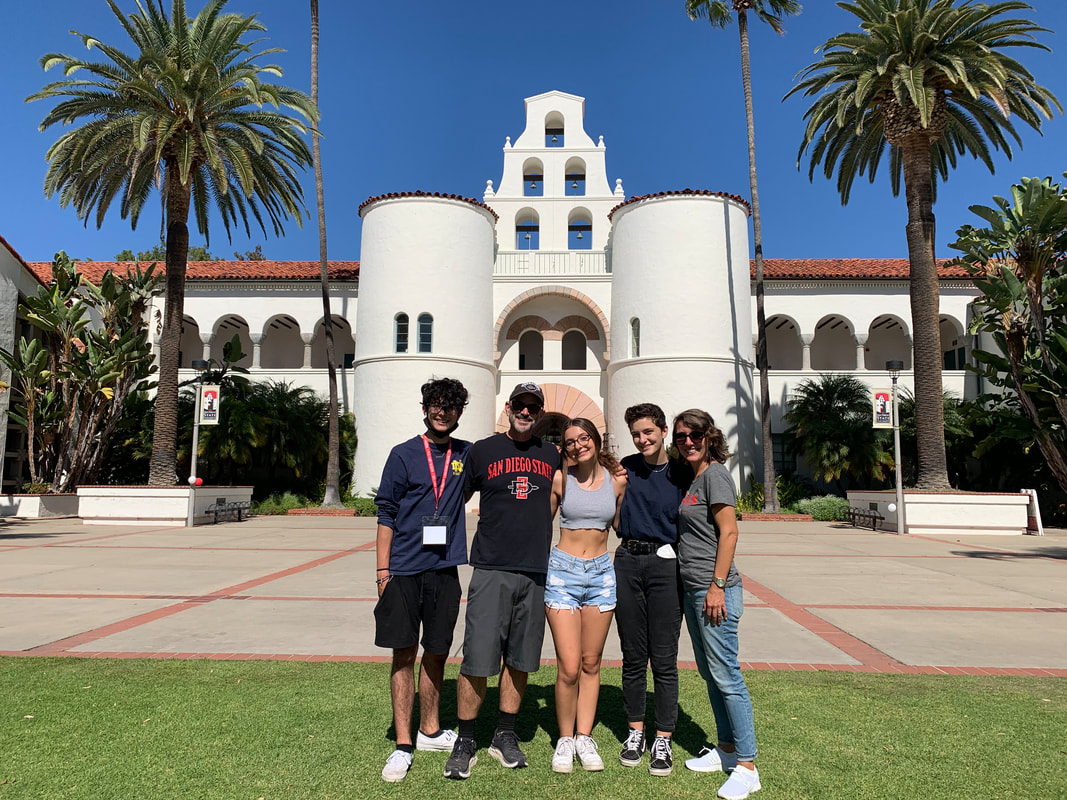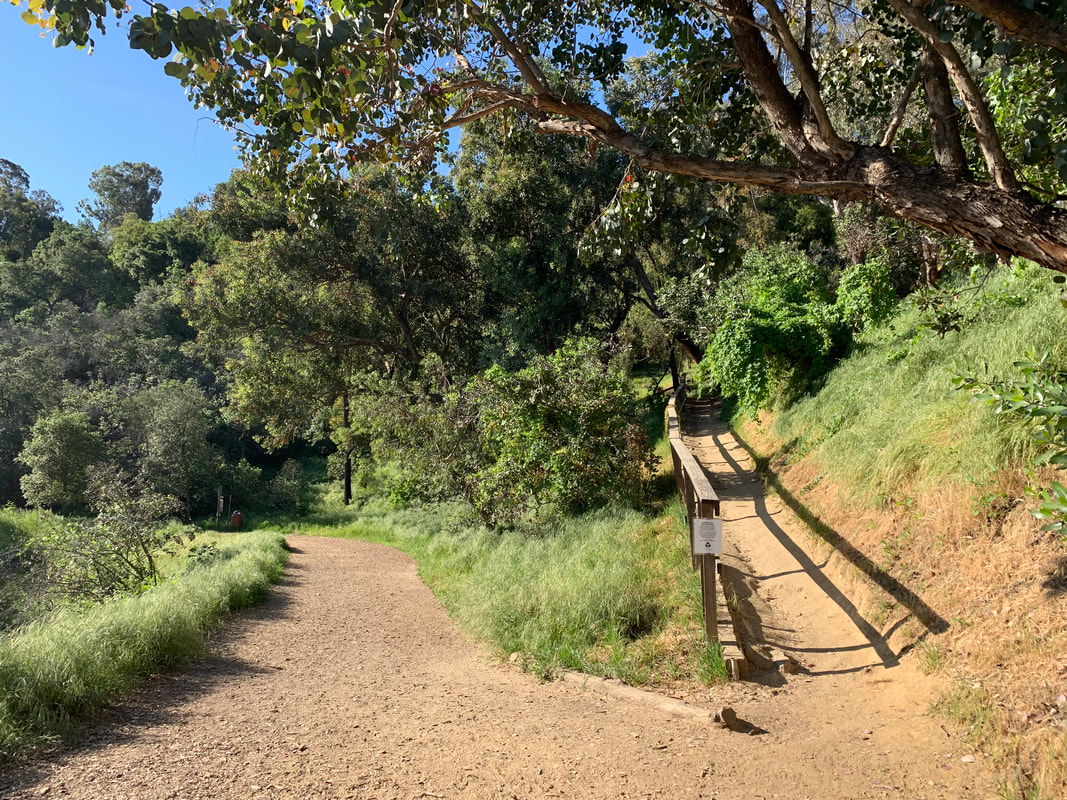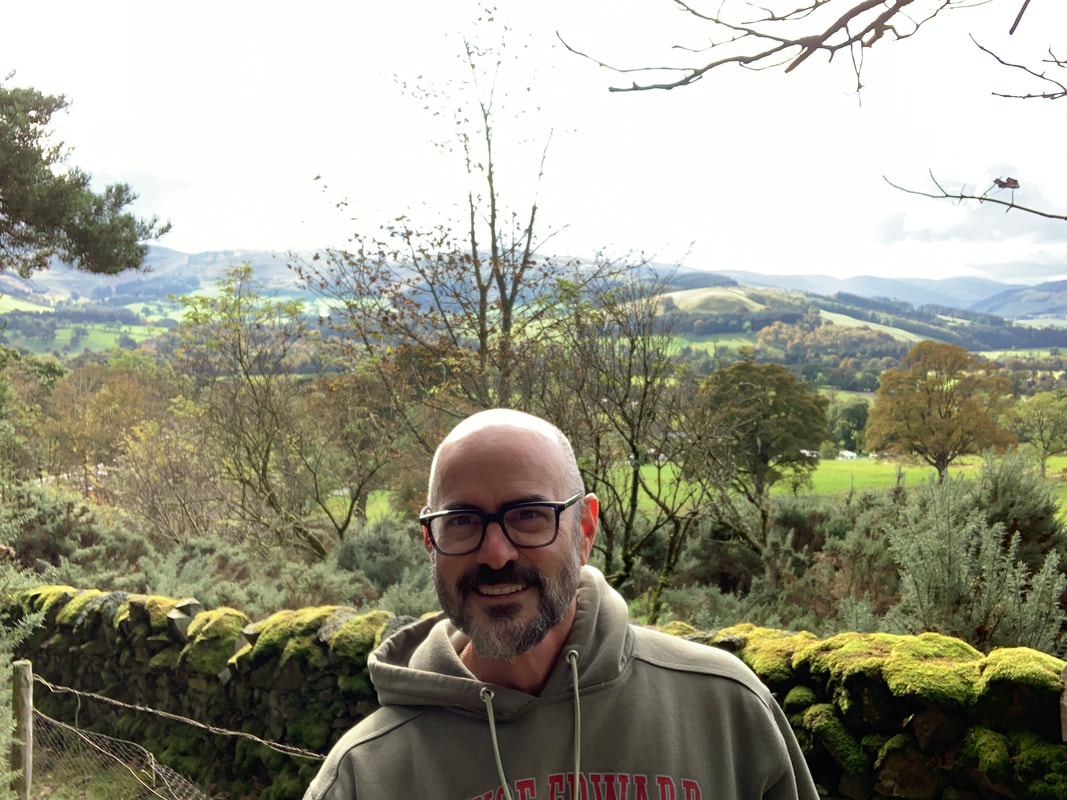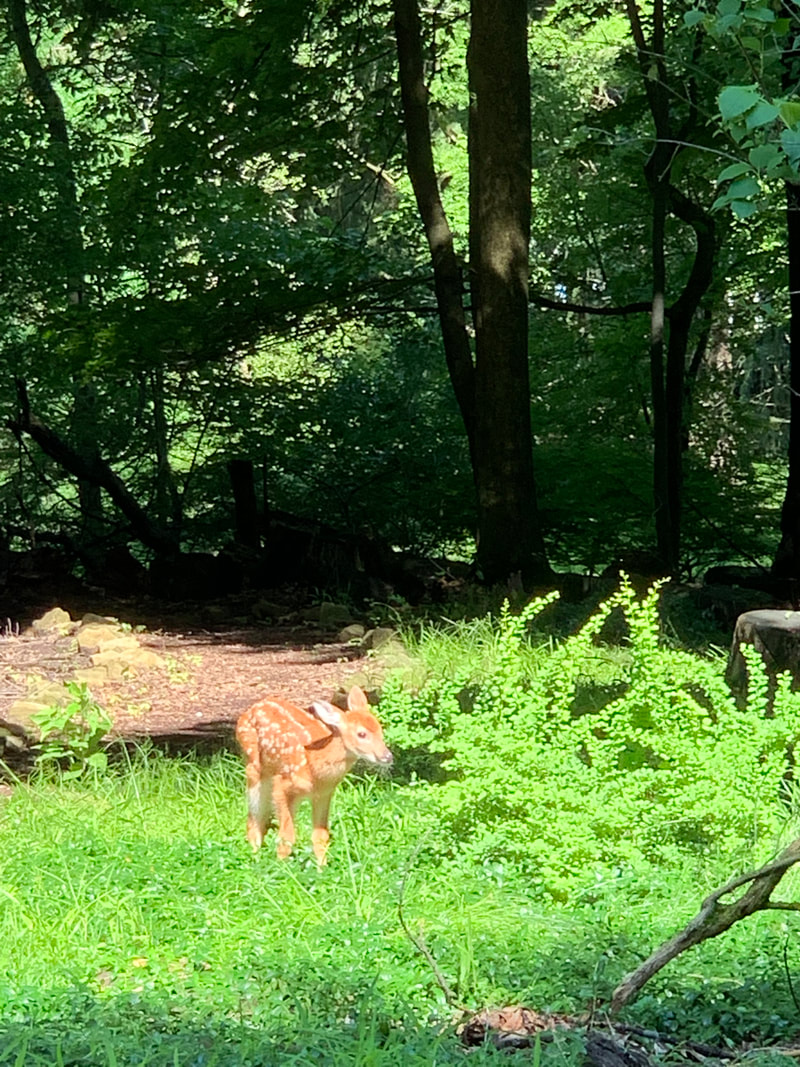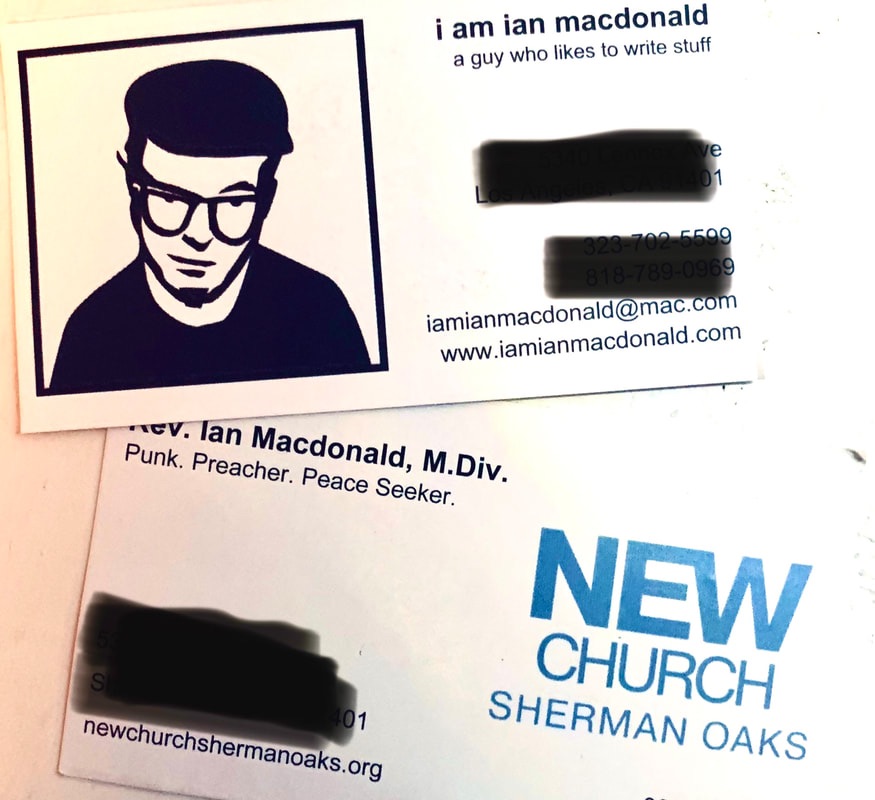“See, I am sending you out like sheep into the midst of wolves; so be wise as serpents and innocent as doves...
This year marks the first time we will be without our kids on Halloween. Each one of our children has decided to go trick or treating on their own with their friends. I know they’re old enough, and hopefully smart enough, to manage without parental supervision, but it still seems odd to send them out there, like sheep without a shepherd to watch over them.
If Jesus is who the bible makes him out to be, I’m sure he had some reservations about sending his disciples out for the first time. Though he specifically sent them into Jewish communities, Jesus did so knowing how vulnerable they’d be; “like sheep in the midst of wolves.” This isn’t the first time Jesus said something like this. Earlier in Matthew’s gospel he told his disciples to “Beware of wolves in sheep’s clothing” (Matthew 7:12). In both instances Jesus warns us that people aren’t always who they appear to be. I guess, costumes and disguises aren’t only brought out for Halloween. For the Twelve to be successful on this quick mission trip, they must, according to Jesus, combine the wisdom of a serpent with the harmlessness of a dove. This seems like an unlikely duo. Biblically speaking, the proverbial view of a serpent is “crafty” and “shrewd” like the one we meet in the Garden of Eden. Is Jesus telling us to be sneaky and deceiving? The dove, on the other hand, was thought of as innocent and harmless, even today, they’re used as symbols of peace, while snakes are used as warning of danger. Maybe Jesus telling us to be peacemakers, even though he knows there’s real danger in doing so. Sharing the gospel is risky business. Especially when you’re being asked to do it like Jesus did - without any disguises to hide behind.
Jesus sends the Twelve without any money, shoes or other comforts. He wants them to take nothing but the love of God in their hearts. I’m sure you can imagine that requires one to be both skillful and kind.
Of course, the world, then as it is now, was purposefully hostile to Jesus’ message – no different than wolves who are intentional about the harm they inflict upon sheep. If we are going to follow Jesus, then we must do so purposefully to avoid becoming predatory ourselves. To take the name Christians means we will shape our lives like Christ, with only the intention to do God’s will. Somewhere along the way, I fear many of us have forgotten this. You don’t have to look beyond the front page to find someone who pretends to be one thing on the outside, while on the inside they’re nothing more than ravenous wolves. Even in the church, there are those who say they love Jesus, but then go and hate their neighbor. That just won’t do. St John the Apostle reminds us, “Whoever says they love God and hates their brother or sister is a liar. For those who do not love someone they have seen cannot love God whom they have not seen.” (1 John 4:20) There’s no place for such deception and disguise in God’s kingdom. If you say you follow Jesus then you have to be like him – walk his path, speak his words, live his love, practice his way…even if the world kills you for doing so. The Bible is very clear about one thing. Jesus is who he says he is. He practices what he preaches, lives out what he teaches. He doesn’t hide behind the law, but willingly exposes his vulnerability through his compassion. Jesus is wise like a snake who avoided being caught in the many traps his enemies laid for him (Mark 8:11; 10:2; 12:13). And he was also as innocent as a dove, constantly inviting his enemies to find fault in him (John 8:46; 18:23). Three times, Pilate failed to find any deficiency in his character (John 18:38; 19:4, 6). Jesus is our mirror. Like him, we too must balance between being a dove and a serpent, because the world is going to try its hardest to tear us down. We must strive to be gentle without being pushovers, and kind without being taken advantage of. Like St. Peter wrote to the churches, we need to “Live such good lives among the pagans that, though they accuse you of doing wrong, they will still see your good deeds and glorify God” (1 Peter 2:12). This is a good reminder for us, especially as we step into that sacred space of life and all it's messiness. As we enter Anamesa, may we never lose sight of the truth that we are the one’s Jesus is sending to announce the good news to bring healing, reconciliation, and love to the world. What this will look like is anyone’s guess. All I know is that we must begin. Now, I’m pretty sure those first Twelve were unsure about what to do. I’m positive they too were nervous and scared to step outside their close circle of friends knowing there were wolves waiting for them. Jesus knows the dangers that await us all. And yet he still sends us out there. He sends us because Jesus also knows the world is still hurting, grieving, and crying out for love. Sharing the gospel is dangerous and scary. But we are given this assurance that we do not do this work alone. Jesus sent the Twelve, like he sends us, with the power of the Holy Spirit by their side. For it’s not us, or our abilities, that brings God’s love into the world. It is the Spirit of God, the same Spirit that empowered Jesus to be wise and innocent. With the Holy Spirit in us, we can drop the masks and leave our costumes at home. We can go out into the world wearing nothing more than God’s glory so that when people see us they only see love, mercy and grace welcoming them. We don’t need to take anything with us, outside a Christlike heart and a desire to do God’s will. While it’s fun to dress up and pretend to be a zombie, or action figure or someone from Harry Potter, Jesus sends us, naked and vulnerable, into our own communities – our families, friendships, workplaces, and social groups – to bring the good news to those who hurting, searching, or suffering in pain. Jesus is sending us, into Anamesa, to face the wolves of fear, rage, racism, and resentment, which we tend to wear to hide our hopelessness, despair, emptiness, and pain. Jesus sends us out to name those things and heal them. We are his people, his sacred body, entrusted with his crucified heart and hands to lift one another up, to bear one another’s pain, and redeem everyone back to God’s loving and open arms. As you leave here today, I invite you to leave your costumes and masks as well. God has no use for them. But God has a use for you. I also challenge you to be bold in your faith, believing that through Christ Jesus, God has already blessed you and prepared and empowered you to enter into any and every space proclaiming the good news, “The Kingdom of God has come near.” The time has come also for us to shake the dust off our feet and go – wise as serpents and innocent as doves – to share God’s love in the world by being nothing more than God’s love for all.
0 Comments
Every now and then I let someone speak for me. Today is one such day. I know it’s kind of weird to copy and paste another person’s original thoughts, especially on your own blog site. Perhaps some of you are already judging me for doing so, thinking that I’m being lazy or unoriginal. You might be right. I’m sure I am. I can live with that. Even the smartest, most prolific people know that it’s not always best to reinvent the wheel. Or words in this case. Therefore, I give you these words of Henri Nouwen who always knows what to say better than I do. Maybe I’m judging myself to harshly as well. I that’s okay too because this is what my favorite Belgian priest had to say about the burden of judgment: Imagine having no need at all to judge anybody. Imagine having no desire to decide whether someone is a good or bad person. Imagine being completely free from the feeling that you have to make up your mind about the morality of someone’s behavior. Imagine that you could say: “I am judging no one!” Imagine — wouldn’t that be true inner freedom? . . . But we can only let go of the heavy burden of judging others when we don’t mind carrying the light burden of being judged! Can we free ourselves from the need to judge others? Yes, by claiming for ourselves the truth that we are the Beloved Daughters and Sons of God. As long as we continue to live as if we are what we do, what we have, and what other people think about us, we will remain filled with judgments, opinions, evaluations, and condemnations. We will remain addicted to the need to put people and things in their “right” place. To the degree that we embrace the truth that our identity is not rooted in our success, power, or popularity, we can let go of our need to judge. “Do not judge and you will not be judged; because the judgments you give are the judgments you will get” (Matthew 7:1). When they kept on questioning him, he straightened up and said to them, “If any one of you is without sin, let him be the first to throw a stone at her.” JOHN 8:7 (NIV) Text excerpts taken from "You are the Beloved" by Henri J.M. Nouwen and the Henri Nouwen Legacy Trust. Convergent Books 2017.
It might not come as a surprise that the one person in my life whose life lessons have been the most influential is Jesus of Nazareth. An unknown author, wrote this which speaks to one particular way Jesus moves us from student to teacher. It found in The Epistle to the Hebrews 4:14-16.
When I finally decided to give in to my call to ministry, my dad suggested I speak with my childhood pastor, Bob Walkup. I hadn’t spoken to him in years, but boy am I glad I called. Because Bob said something that has stuck with me ever since. In his soft-spoken southern voice, he said, “Ian, you’ve always been a minister.” It wasn’t until I was thinking about this passage, that I fully grasped what Bob meant. Although this priestly description in Hebrews is about Jesus, it also speaks to who we are as his students, his disciples. More than students, we are called to teach others about God’s redeeming love. Which means we are all called to be ministers. I bet that’s the last word you’d use to describe yourself. I hold a theology degree and ordination papers, and even I hesitate to call myself that because of the negative connotations attached to it. And lets honest, there are times when I barely understand my own faith muchless know how to manage others. I constantly wonder why God wants someone like me to teach the world about love, especially God’s love? Who am I? What do I know? After decades of trying to figure it out, I’ve come to this conclusion: God uses our brokenness and failures to minister to the world. I mean that’s what God does; uses foolishness and weakness to humble the wise and strong. The cross and resurrection say it all.
How you’ve learned to deal with addiction, pain, grief, rejection, or any other challenge you’ve faced, all speak to God’s redemptive work on your life. It might not be the prettiest or happiest way to go about it, but every story you’ve ever written, God will use to tell an even greater story. The redemption story of Christ Jesus, our High Priest.
Now, I used to hate the scar that cancer gave me. Most people don’t see it. But every time I looked in the mirror it just screamed at me - reminding and reprimanding me of my past. Then one day I was sitting with a person undergoing chemo. It was my first time meeting her. I didn’t really know how to begin. She looked beaten down and worn out from the brutal treatment to fight this ugly disease. I guess I could have preached a bunch of platitudes that people often use because they think helps people feel better but really it only does the opposite. Instead I showed her my scar. And that seemed to do the trick. This beautiful ugly line would be the bridge between us. We shared a common story, and quickly formed a close bond over it that allowed us to trust one another and minister to each other from our hearts and hurts. Now when I see this line across my neck, I no longer think about what I might have done to have caused it. Instead, I think of what God did to redeem it. Whatever you’re experiencing, your story is a part of God’s great story. One we share with Jesus himself. By his own pain and suffering Jesus blessed our scars and ordained our stories. Misfits, addicts, saints, and sinners alike are all called to be ministers, preaching and teaching God’s great love to the world. Sure, it might be my job to do the churchy things – like teaching Bible stuff and leading worship. But Jesus made it very clear that we all share the responsibility to pray for one another, forgive each other, and to care for the burdens of the least of these our brothers and sisters. As disciples of Jesus, as students of Christ, our job in life is to continue his ministry – to teach the good news of God’s redemptive love in all the ways we love one another. I’m sure if you look at your own story, you will see how you have always been a minister. A met a man who’s been helping a Vet deal with PTSD. He confessed he doesn’t really do much but listen and offers the guy a safe space to let it all out. Do you think this guy knew he was imitating Christ who heard the cries of people and showed sympathy towards them? I’m part of an organization that helps people living with food insecurities. Most of them don’t care if I’m a minister or not. But in each bag of groceries, each loaf of bread offered, God’s love and provision is proclaimed. Sometimes the smallest acts of kindness are all we need to do to show the world just how big and inclusive God’s love really is. It’s not just my job to listen to or comfort others, it’s yours as well. We are all pastors called to offer hope. Each one of us a priest given the ability to sanctify any situation. Every one of us is a minister called to preach God’s love by being God’s love as Christ taught us to do. The author of Hebrews describes Jesus as the Great High Priest. He is the one who is in charge of offering gifts and sacrifices to God on behalf of the people for their sins. Now, the literal meaning of the word “priest” is “bridge.” That is to say, Jesus is the bridge between God’s desire and our needs. But if you know the gospel story, you know Jesus didn’t spend a lot of time in the temple with the official High Priest. Instead, he walked the dirty streets. And entered our messy homes to redeem us. He comes to where we are and blesses our stains and smells. And comforts our wounds and pain. This is his story; one he used to teach and empower us do the same. Jesus is calling us to be ministers; to put on our clerical collar and open our pastoral heart and be that bridge between heaven and earth. We don’t need to be perfect for God to use us. We don’t need to be straight A students or go to the best schools. We just need to be more like Jesus - obedient and faithful to our calling to the best of our ability. God will do the rest. Wherever hunger or injustice is present, we too must be present. Wherever there are sick and dying people, or captives and prisoners we are called to share our story of God’s redemptive love right there in Anamesa – in that space between the messiness of faith and life; right in the middle of it all. May we all go with the intention to be the bridge between earthly and Divine so all lives might find true healing and peace. And so, all people can thrive in their stories as God has always desired. May we all go out and testify to God’s greatest glory – teaching the world with your heart and hand, and like St. Francis added, “Using words only when necessary.” Work Cited Bartlett, David L., Barbara Brown Taylor, eds. Feasting on the Word: Year B, Vol. 4. Westminster John Knox: 2009. pp. 182-186. Perhaps once we can see God in plants and animals, we might learn to see God in our neighbors. And then we might learn to love the world. —Richard Rohr
Last Monday, the Church celebrated the feast of St. Francis of Assisi. There is so much to say about this great person, who gave up his status and wealth to care for the poor. But today I want to focus on how, like this psalm, Francis helps us see God in a whole new way. Which for me, came from his understanding of nature.
As the patron saint of ecology, animals, and peacemaking, Francis believed God was in the center of every living thing, and that every living thing has a unique way of speaking about God. Every bug, tree, bird, fish, and plant is a testimony to God’s providence and power. Perhaps inspired by Francis, Meister Eckhart said, “A person who knew nothing but creatures would never need to attend any sermons, for every creature is full of God. A book of their own.” I take this to mean that every living thing is gospel; a proclamation of God’s great glory. This might explain why Jesus used nature as the centerpiece in most of his parables. Or why the psalmist used the earth’s elements as visages of God’s greatness. God’s clothes are made of majestic light. God’s bed chamber is water. God’s ride is a chariot made of clouds and wind. It sounds like God lives in the 1970’s! Earth, wind and fire - everything in our world becomes a place where God sets up residence to be with us. The poet, like Jesus and Francis, speaks of God in the present tense - imagining God here among us. Like right here, right now. This should serve as a warning to anyone who proclaims God’s truth but denies the claims climate scientist. Viewing the world as artistically as the writer of Psalm 104 does, anyone who loves God should want to nurture, protect, and love the earth as much as God does. Not only do we need it to sustain our life, and the life of future generations, but like Francis seem to express: Nature is God’s greatest missionary.
watch the message here. seriously, it's not that bad.
The rain and wind and even mosquitos remind us of God’s goodness. Jesus tells us that it’s in the lilies of the field and the birds of the air we discover God’s faithfulness and provision (Mt. 6:28-30). He taught us that with every gust of wind we are reminded to live our lives trusting God’s Spirit (John 3:8). Even the Apostle Paul wrote that nature testifies to God’s existence, thus we have no excuse not to know God (Rom. 1:20).
As I learned from St. Francis, God is here. And there. And everywhere. Every living thing is a divine revelation that reveals God’s beauty, glory, power, wisdom, presence, and, most of all, God’s loving care for us. Maybe that’s why I’m drawn to spend time in nature. I want to always be surrounded by God’s wondrous love. A few years ago, I was on a silent retreat in Cleveland. Sitting in this little hidden nook tucked away in the forest, I sat still with my eyes closed listening to the leaves and birds singing. Before I realized, an hour had passed. When I opened my eyes, I saw three baby deer standing within arm’s reach of me. This divine trinity reminded me just how close God really is to us.
Like Kathleen Bostrom wrote, Everything is good because God created it this way. This is good. That is good. You are good. I am good.
Rats, moths, elephants and donkeys are all made good because of God’s great love. Once Francis realized this, he began to revere every living thing; often referring to the sun and moon and trees as “brother” and “sister.” Like Henri Nouwen put it, “Everything in creation belongs to the large family of God.” When we pause to recognize this interconnectedness between nature and humans, it’s hard not to stand in reverence with our souls lifted “in wonder and awe.” In 2011, I took a life-changing trip to Tanzania. I spent ten days in the Serengeti, completely blown away discovering how animals are really no different than us. They played, napped, conversed, looked for food. I even saw an elephant discipline his child for pestering her little brother. The world is full of God’s imagination and creativity. And we are a part of it. This really became clear to me there at night under a canopy of stars. With no artificial light to block the view, I was blown away by their brilliance. The sheer number rendered me speechless. One night, and I’ll never forget this, I imaged myself not standing on earth but instead diving into heaven, into a pool of shimmering and shining lights that were calling out to me. Jumping in I became one with that celestial body, where I swear I heard God whisper in the wind, “This is good.” I think this is what God wanted me to witness. Had my eyes not been open by the faith of St. Francis, I might have overlooked that Divine presence right there with me. I might not have learned what my worth is to God who made us out of stardust and declared us good. That is why it is so important for us all to take the time to be in nature; to be present in creation and show gratitude to our Creator. Whether it’s in a forest, or at the park, in the ocean, nature gives us endless opportunities to let your heart sing, “Bless the Lord, O my soul.” To live life without taking notice of the world around you is to miss out on one of the most tangible and beautiful ways God speaks to us. This is important to remember as we enter Anamesa, that sacred space in between heaven and earth. As we move, we must do so with intention, with our eyes on God whose is revealed in the faces of not just puppies or trees but in the hungry, the tired, the sick, and the dying as well, our brothers and sisters. As we close that gap between us and them, may we do so willingly and tirelessly - like Jesus and Francis did – sharing the good news of God by being a place for God to be present for others. This is how we humans testify to God’s glory: by proclaiming it in all the ways we love one another, as God loves us. Like I learned from St. Francis, wherever there is life, there also is God. And like I learned from Jesus, wherever God is, there is love. This doesn’t mean there aren’t things in this world that won’t try to trip you or trap you. Although Jesus often retreated to the mountains and wilderness to be with God, it was also out there he was tempted to take his eyes off God and place his heart on the world. Our world, with all its bright lights and glitter likes to promise us power and prestige if only we bow down and worship it. Some people are confused, placing their faith and even their worship on the things of the earth. Neither Jesus nor Francis worshipped creation. But both kept their devotion and loyalty to its Creator. God reveals God’s self to us in the most amazing ways, not so we can make an idol or religion out of it but so we will always see God and set our hearts right within it. It is my hope that you leave here today with your eyes and heart forever focused on the One who made them. The one whose providence and promises have been set since the beginning of all creation. By looking at the world around us, by being present and alert, may we always receive God’s love and reflect it back into the world. Be it here and there and everywhere. By our faith, we a part of Christ’s body. And by grace we are a part of God’s holy family. We are, and always have been, God’s beloved. Beautifully and perfectly made in the divine image of the One who whispers to us in the wind, “this is good.” Work Cited Bostrom, Kathleen. Bartlett, David L. and Barbara Brown Taylor, eds. Feasting on the Word, Year B Vol. 3. (Louisville: Westminster John Knox, 2009). Nouwen, Henri. Bread For The Journey. (Convergent, 1997). Rohr, Richard; notes on St. Francis from his daily devotional Every Creature Is An Epiphany (accessed 10.02.21). We are all the same in that we are all unique.The one thing that gets me through the day, and all the challenges it brings, is knowing who I am. I have always been confident about that. In my past profession, I was Ian Macdonald, a guy who likes to write stuff. In my present profession, I am Rev. Ian Macdonald - punk, preacher, peace seeker. But I still like to write stuff. Or as someone once said, “a guy who likes to ‘right’ stuff.” When I met my wife’s family for the first time, there were so many new people around that Thanksgiving table that year (64 people total) that my future mother in law had us all introduce ourselves. Around the table we went. Nearly every name was an Irish name, which was no surprise since my wife’s family is Irish. When the time came for me to say my name, I said, “I’m Ian. And I’m Scottish.” Yes, I will say it was pretty ballsy of me, not knowing the crowd that well. But at least my wife knew who she was getting in bed with so to speak, and I was able to set myself apart as an individual, and not merely someone’s date.
What will never change, and always be my consistency in this unpredictable life is that I am always a beloved child of God. A name I have claimed as my own. This name has privileges too.
A man who people called Henri calls us to accept our identity as a child of God. And for good reason. He wrote, “Your true identity is as a child of God. This is the identity you have to accept. Once you have claimed it and settled in it, you can live in a world that gives you much joy as well as pain. You can receive the praise as well as the blame that comes to you as an opportunity for strengthening your basic identity, because the identity that makes you free is anchored beyond all human praise and blame. You belong to God, and it is as a child of God that you are sent into the world.” I know my name. I know who I am. And God knows this to. Formed out of a deep desire, we become a family fashioned out of love. Many of us don’t get to experience real love in our earthly families. But when we accept our place in God’s family, we begin to see love, and all the joys and pains that go with it, in a whole new way. A way that names us, claims us, and makes us fully alive, fully present, and completely free to be who God made us to be - The Beloved.
Kathleen and I finally started watching the show Nine Perfect Strangers. One of the characters is a young social media influencer. She and her husband are famous only because they won a massive fortune playing the lottery.
We learn that Jessica used some of that windfall to augment her appearance with implants and injections. But when she defends herself against a jealous attack, Jessica reveals a hidden truth about her quest for perfection. “No matter how many skin treatments you do, some freckles never fuck off.” I know how insecurities can cause a person to think less of themselves. But I also know the grass isn’t always greener on the other side. Most of the time it’s just photoshopped to look that way. We can point the blame at people like Jessica for making us have negative images of ourselves. But to be fair, those people are no different than you or I. Fictional or not, there are just some things that can only be fixed by going straight to the source and dealing with it. Sometimes we have to go deeper than we want. The Bible, like today’s reading from Psalm 26, invites us to dive deep into the words. And in doing so, there’s a good chance we will discover something beautiful buried within ourselves. Ironically, a long time ago, poets were the social celebrities. And they too were faced with some image issues as well.
This is our reminder that our focus ought to be on God and not on how many likes or views we get.
The more I chase after that little blue thumb of approval, the more Facebook changes the algorithm to keep this cycle going. But God’s love is steadfast, unwavering. It never changes. God is just as faithful and kind today as God has always been. And will always be. We need to stop looking at others for direction and approval. Instead, let us keep our eyes on God like a sea captain looking to the stars for bearing. By keeping your gaze upon God, you set the bearings of your faith and heart to move in the right direction. We might not be perfect, but God is constantly moving us towards divine perfection. But are we willing to follow God there?
watch the message here
The great Trappist monk Thomas Merton often prayed, “My Lord God, I have no idea where I’m going. I do not see the road ahead of me. I cannot know for certain where it will end. Nor do I really know myself, and the fact that I think that I am following your will does not mean that I am actually doing so. But I believe that the desire to please you does in fact please you.”
At the heart of this psalm is a desire to please God, and that, my friend, is enough to please God. As Kathleen Bostrom notes, “God seeks our affection and delights in our devotion.” God isn’t asking us to be piously perfect. God knows our faults. More importantly, God knows our hearts – the very place God has etched a divine imprint in us all. It’s that imprint that draws us together to God. To paraphrase Richard Rohr, “God can’t help but love us because God is always being drawn to God’s love in us.” We’re not so much dependent or reliant on God’s steadfast love as much as we are already a part of it. Our task, then, is to receive and reflect that divine image of God in the world. To be like the psalmist who focuses on the unwavering kindness of God, and then builds a right life upon that foundation. When our focus is on God, then our hearts are moving in the right direction. Now there’s one more thing I want to point out. Something that speaks to a problem that is infecting us all, and has used social media to spread it. The poet’s words are a warning to us not to put on a mask of righteousness - especially in some feeble attempt to please God, because it doesn’t work that way. To boast, “I’m a saint compared those people over there” grossly undermines the good news of God’s redemptive love made manifest in Christ Jesus, who declared “the first will be last and the last will be the first” (Mt. 19:30). The people this poet points out – the worthless, the hypocrites, and evil doers, people who take bribes – are the same kind of folks Jesus loved and cared for. People like you and me. Jesus said, “Do not judge others.” Instead “love them and forgive them as God has done for you.” We do not have the right, nor righteousness, to place ourselves above others. Only God does. Just as we shouldn’t judge others, we shouldn’t judge ourselves by what others think of us. God is our only judge. And that’s good news. For it’s in God’s nature to be faithful. It’s in God’s nature to be merciful. Although it goes against one’s inclination to reward faithlessness with fairness and mercy, that’s exactly what God does. Perhaps then, the better way to read this psalm is to picture God as the one penning the poem. For it is not I but God whose intentions and motivations are pure, honorable, upright. It is not I but God who continually and unwaveringly walks in integrity. It’s not our goodness that saves us but only the goodness of God - a goodness made flesh in the Incarnate Christ, who I think it’s safe to say is still the greatest social influencer of all time. If we are going to look to any one as a model of perfection, it’s the One who always seeks to offer us forgiveness, hope, and new life. No matter what we want our life to look like, how perfect we pretend to be, we all have cracks and dings in our armor. We are not perfect people. But we are made perfect by Christ who loves us despite our imperfections. As you leave here today, I challenge you to enter Anamesa reflecting Christ – meeting every opportunity with a desire to be the visible incarnation of God’s deep and abundant love. Although we are all equally broken. We are all equally blessed. Though we all have faults and failures, we are all beloved children of God – forgiven not because of how the world sees our worth, but because God made us worthy. Through Christ, God has washed our hands clean. And fashioned us together as one body, with one heart, and one mind. Therefore, let us walk in our integrity by walking together with Christ in God’s integrity. Let us be redeemed, because out of great love for us God in Christ has graciously redeemed us. Let us walk on level ground because God, through Christ Jesus has straightened the path and leveled the playing field. When the good news of the gospel is lived out in the way of Christ Jesus, the Kingdom of God is revealed in all its glory. And we become the great congregation that blesses and pleases the Lord, now and forever. Amen. Work Cited Bartlett, David L. and Barbara Brown Taylor. Feasting on the Word Year B Vol. 4. (Westminster John Knox: 2009) pp. 128-133. Rohr, Richard with Mike Morrell. The Divine Dance: The Trinity and Your Transformation. (Whitaker: 2016). |
Ian MacdonaldAn ex-copywriter turned punk rock pastor and peacemaker who dedicates his life to making the world a better place for all humanity. "that they all might be one" ~John 17:21“Prius vita quam doctrina.”
~ St. Thomas Aquinas (1225–1274) * “Life is more important than doctrine.”
Archives
June 2024
|

